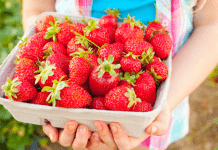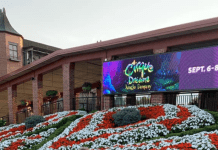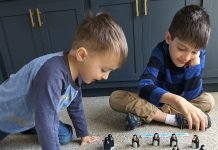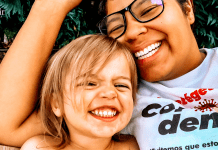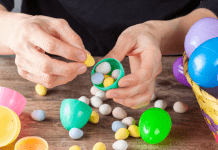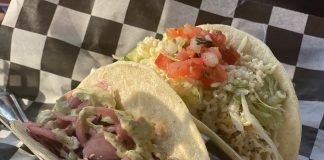Every few weeks, after dropping off my kids at school or on my way to pick them up, I listen to a podcast. One specific episode of one specific podcast.
The podcast: Lola’s Ink
The episode: Dear Lena: You are Black. You are Proud. You are Khmer.
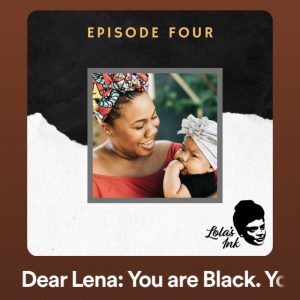 I’m not going to spend too much time talking about this podcast because nothing I can say will do it justice. Jenna Hanchard is a magnificent storyteller whom I had the privilege of working with when we were both broadcast journalists. Rather than spend time reading my description of her podcast, I highly recommend you go and listen for yourself. Every episode is thought-provoking, smart, engaging, and educational. But episode #4, Jenna’s love letter to her daughter is LIFE CHANGING.
I’m not going to spend too much time talking about this podcast because nothing I can say will do it justice. Jenna Hanchard is a magnificent storyteller whom I had the privilege of working with when we were both broadcast journalists. Rather than spend time reading my description of her podcast, I highly recommend you go and listen for yourself. Every episode is thought-provoking, smart, engaging, and educational. But episode #4, Jenna’s love letter to her daughter is LIFE CHANGING.
And it’s all because of these words that her guest Nneka Julia Odom Robinson wrote in a letter to Jenna’s baby girl that she read during the podcast.
“You’re not half of anything. You are twice of everything.”
Think about that for a minute. Especially those of you who have mixed-race children like me.
Now let’s review those words again.
“You’re not half of anything. You are twice of everything.”
I still get chills every time I hear them.
How many of us who have mixed-race children have told people, “my kid is half-this and half-that.” Or even told our children that they’re half-this, half-that. I spent the first few years of my 5-year-old son’s life telling him he’s half-Chinese and half-white.
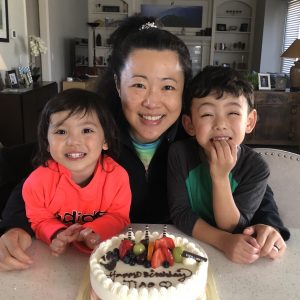
But what does half mean? Sure it means equal parts, but it’s still less than whole, right? I mean, we ask if the glass is half empty or half full during challenging situations (somehow it’s never full)… Do you want a whole slice of cake or just half (who eats half a slice?)… Are you running a whole marathon or just the half? (OK, that one doesn’t count because I’ve run a whole marathon and, trust me, it will never happen again.)
Back to our topic… Should our children be considered less than whole of anything? Does calling them half limit them? Why should I put a clear line of distinction on how much of my children is me and how much is their dad? And what about the other parts of them that may one day be key parts of their identity? Where will those fall if they’re already equal parts one and another?
So after listening to this episode of Lola’s Ink the first time, I became very intentional in how I describe my children. I now say they are Chinese and white. They are mixed-race, biracial, or multiracial. They are a wonderful combination of my husband and me. As they get older, they can choose how they want to identify themselves, but I’m not going to set up guardrails now that pre-determine that for them.
As I continue on my journey of learning about race, anti-racism, and my own identity has a Chinese-American, I am also trying to help remove barriers for my children in hopes that they will feel confident to be their true authentic selves as they grow up and create a world that is free, fair, and just for all communities of color.
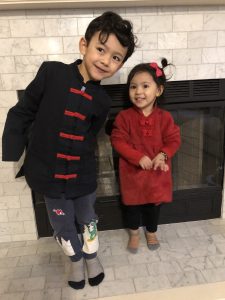 And that starts with something that seems as small, but is actually pretty huge, as not limiting them to exactly half of this and half of that, but rather teaching them that they are the sum of all the parts of us – from my Chinese ancestors’ deep, rich, cultural history, to my husband’s endless generosity, kindness, care (and his stubborn-ness, forgetfulness, and clutter-ness). My children deserve to know where they come from and who they are, and feel confident that they will always be more than half.
And that starts with something that seems as small, but is actually pretty huge, as not limiting them to exactly half of this and half of that, but rather teaching them that they are the sum of all the parts of us – from my Chinese ancestors’ deep, rich, cultural history, to my husband’s endless generosity, kindness, care (and his stubborn-ness, forgetfulness, and clutter-ness). My children deserve to know where they come from and who they are, and feel confident that they will always be more than half.
“You’re not half of anything. You are twice of everything.”
Thank you Jenna and Nneka for sharing these incredible, meaningful, emotional, impactful, moving, LIFE-CHANGING words.
Featured Image Photo Credit: Erin Parrett with SmallBirds Photography




